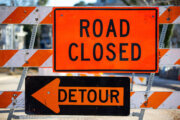In a court case, one of the key points is evidence that is collected. In legal terms, this is called discovery.
Discovery is the “formal process of exchanging information between the parties about the witnesses and evidence they’ll present at trial,” according to the American Bar Association.
Here’s what else to understand about this important legal term.
[What Are Privileged Communications in Court?]
What Is Discovery?
Discovery occurs before a trial begins, when each side needs to put forth evidence or request documentation the other party has in their possession.
“Discovery in court is forcing the opponent to show all of their pieces or all of their cards on the table,” says Julia I. Vázquez, a clinical professor of law and director of the Community Lawyering Clinic at Southwestern Law School.
According to the ABA, discovery is designed to prevent one side from being ambushed in court, when there’s no time to obtain answering evidence.
Types of discovery can include depositions and documents. Timing may vary as well. For example, a family law case will have a different timeline than an eviction case or a small claims case, Vázquez says. But the general deadline is typically 30 days before the trial.
Rules can also vary by state and location. Vázquez encourages people to seek out a legal clinic or a local law library as a resource if they cannot afford an attorney. She adds, “I usually liken it to a game of chess or some other game where the other side is either hiding the pieces or not showing you all the pieces.”
What Is the Purpose of Discovery?
Discovery ensures fairness since both parties are aware of what evidence the other has.
“From the court’s perspective, it really is to save time but also to encourage settlement,” Vázquez says.
It adds context to the details of the court case, Vázquez says.
For example, if someone fell in a store, that person can ask for security footage or witness statements that show someone knew there was a huge hole in the middle of that aisle.
“You thought you had a slam-dunk case and then you got these documents that dramatically challenge the whole theory of your case, you might be more inclined to settle,” Vázquez says.
Discovery can sometimes take a long time, cautions Aaron Bundy, founding partner at Bundy Law, based in Tulsa, Oklahoma, with multiple locations. That’s because attorneys may have objections, which can create delays.
“These cases are just spinning their wheels in this discovery slog,” Bundy says. “It’s the perfect storm.”
What Are Misconceptions About Discovery?
One misconception about discovery is that individuals can request anything and everything.
“There (are) limits to discovery,” Vázquez says. People cannot ask for irrelevant information. The court will also balance whether something is so burdensome that the other side cannot produce it.
Another assumption is that people can simply wait until court to engage in the discovery process. But that’s not how it works, Vázquez says. “If someone doesn’t respond, that could entitle the other person to make statements that are established as true.”
Another misconception is that it’s optional, Bundy says. “You have to participate in the process,” Bundy says. “If you don’t do discovery right, you could still lose.”
More from U.S. News
What Is Discovery in a Court Case? originally appeared on usnews.com







